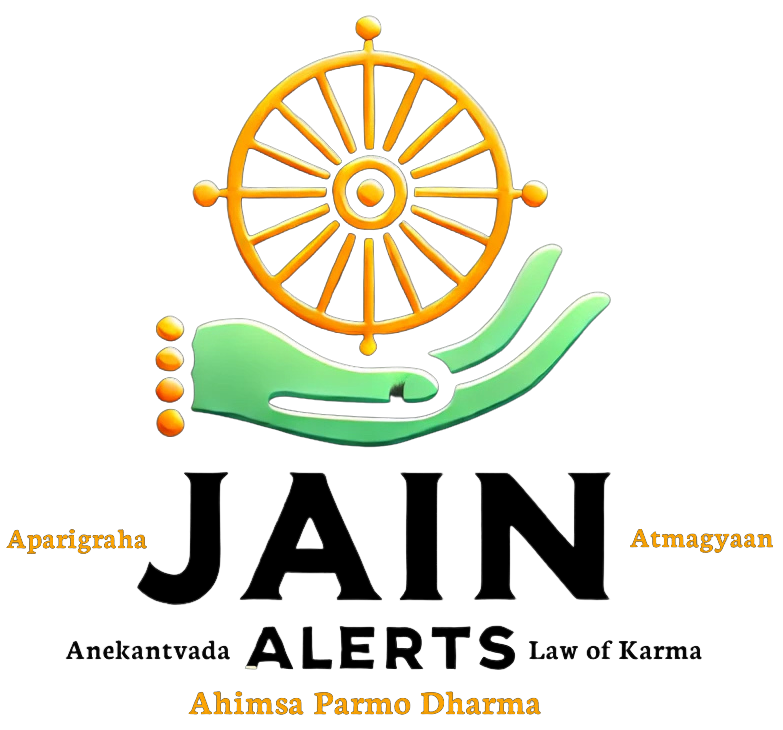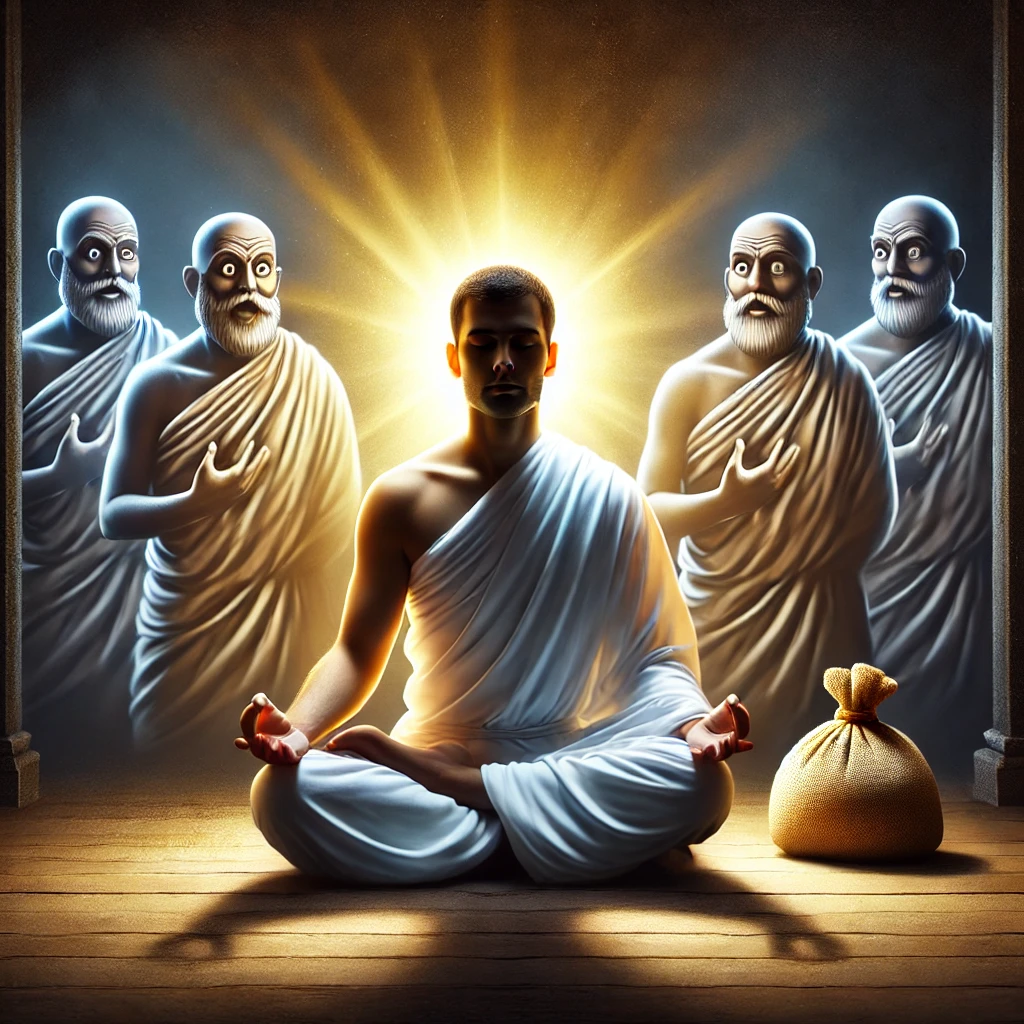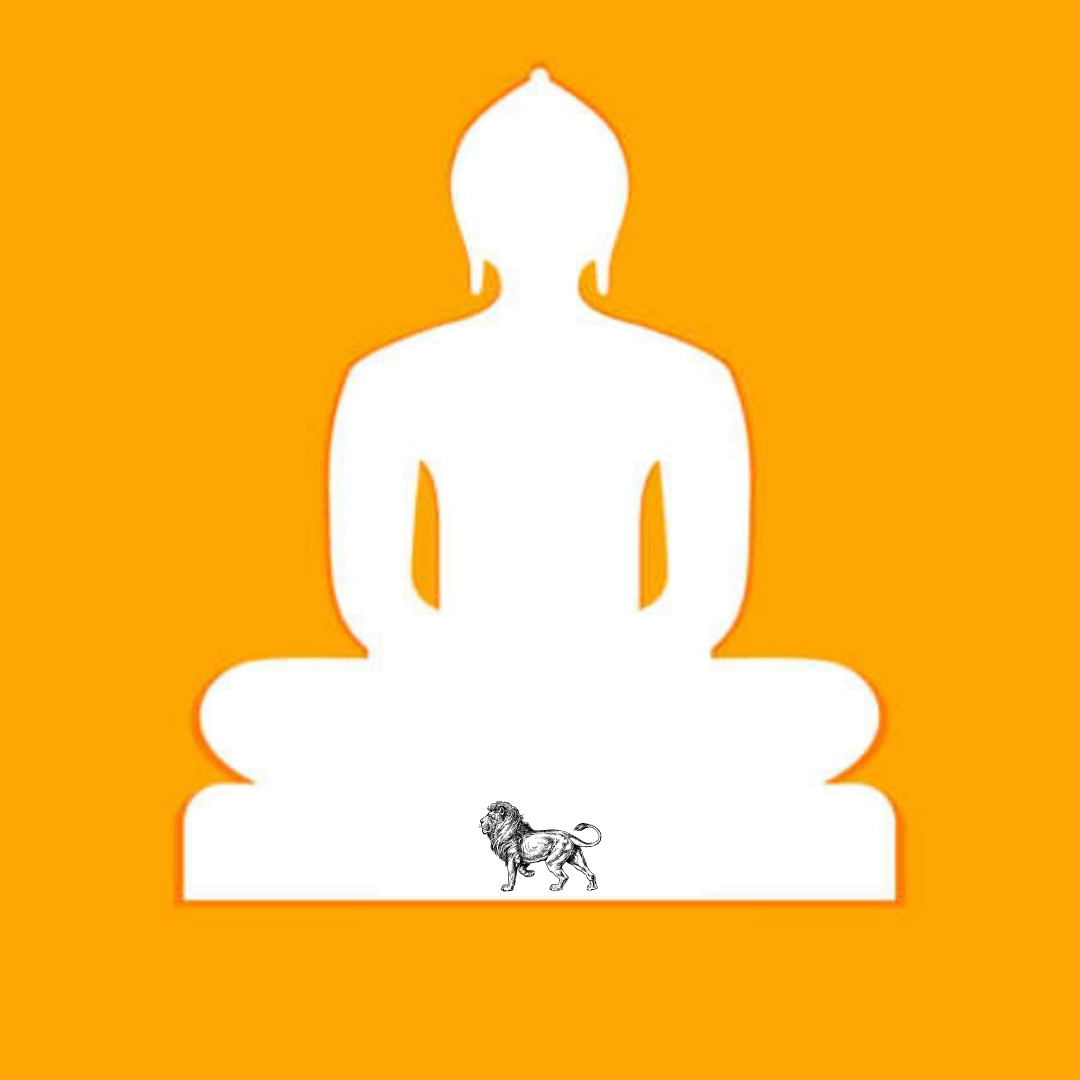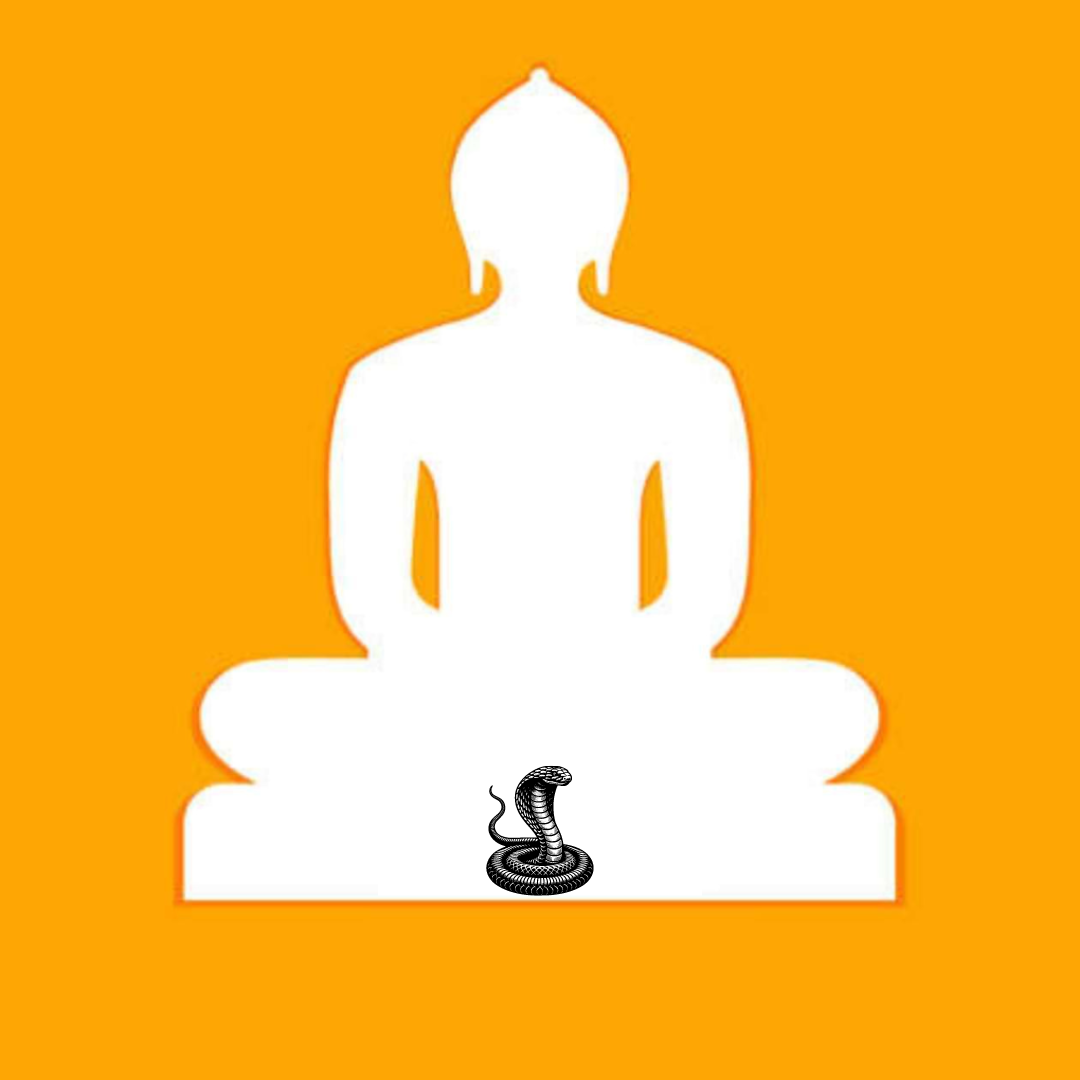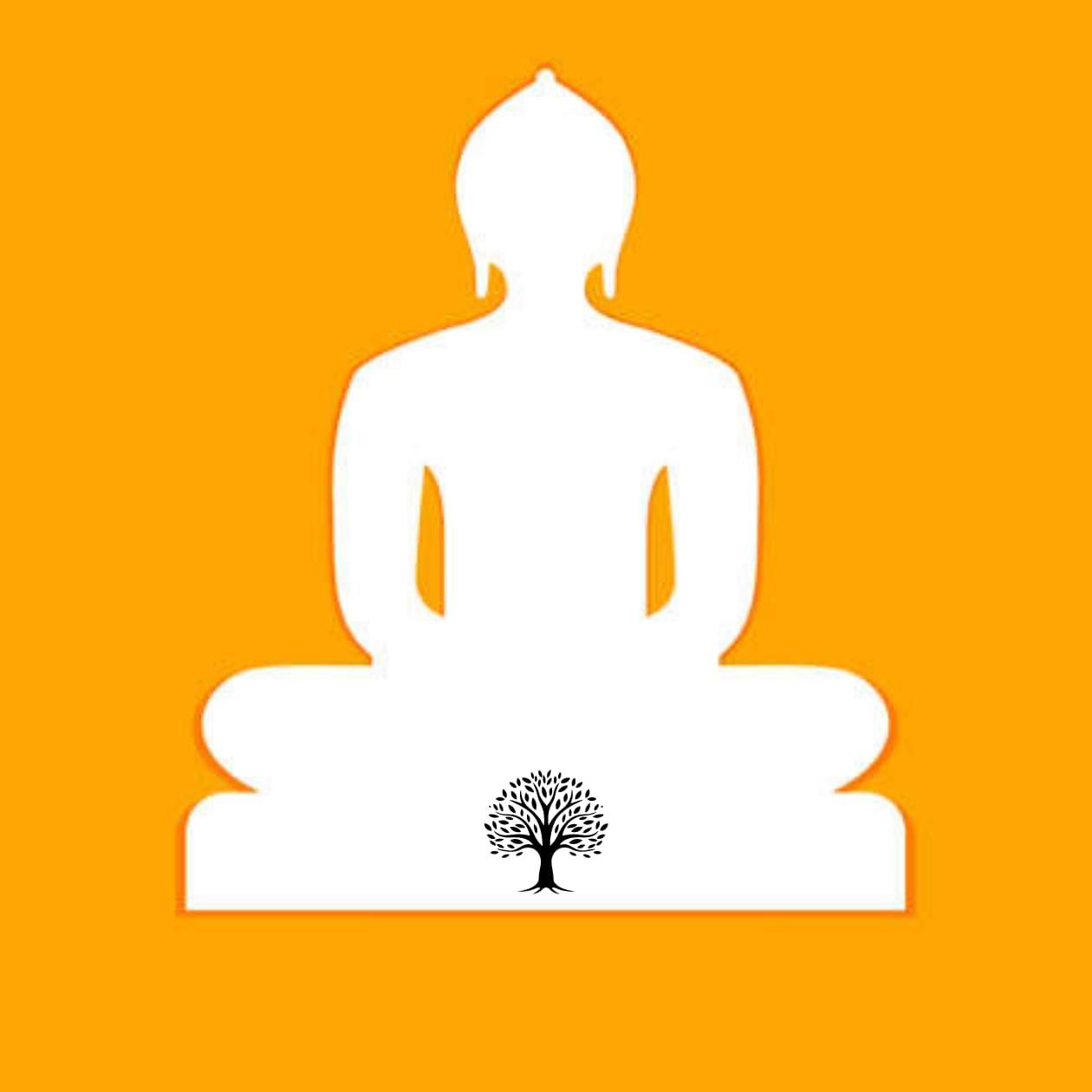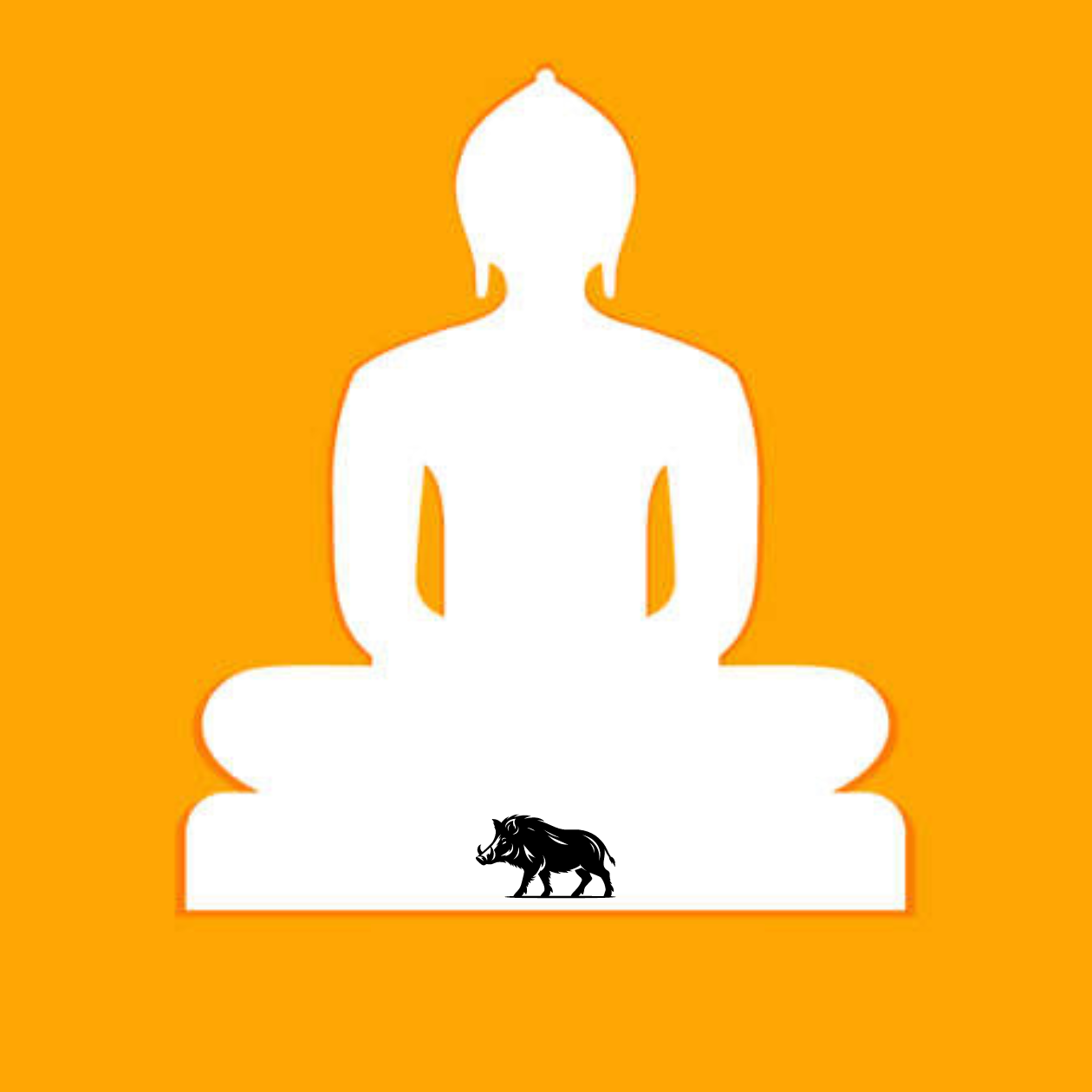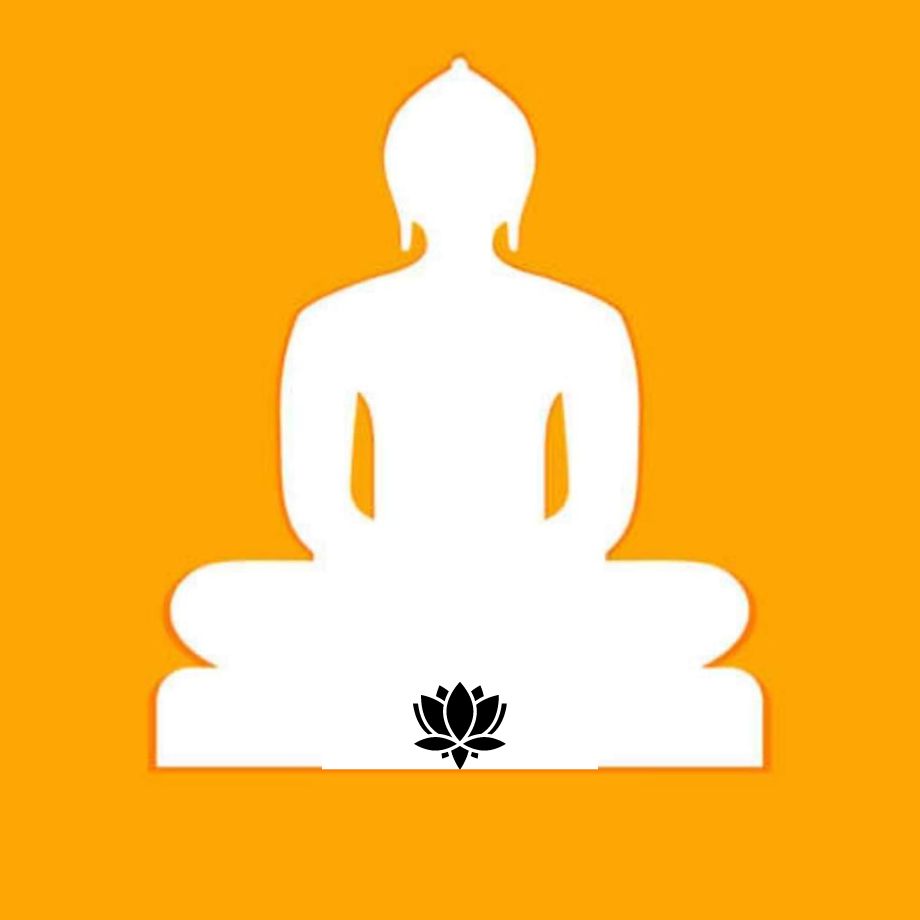श्री महावीर स्वामी/वर्धमान भगवान का परिचय
| पिछले भगवान | पार्श्वनाथ भगवान |
| चिन्ह | सिंह चिन्हसे |
| पिता | राजा सिद्धार्थ |
| माता | महारानी त्रिशला देवी |
| जन्म स्थान | कुण्डलपुर नगर में |
| निर्वाण स्थान | पावापुरी से |
| रंग | स्वर्णवर्ण |
| वंश | नाथ वंश मे |
| दीक्षा पालकी | चन्द्रप्रभा नाम की पालकी |
| अवगाहना | सात हाथ की |
| आयु | बहत्तर वर्ष |
| दीक्षा वृक्ष | शाल वृक्ष के नीचे |
| प्रथम आहार | हस्तिनापुर नगरी में प्रथम पारणा श्रेयांस कुमार ने इक्षु रस |
| क्षेत्रपाल | कुमुद, अंजन, चामर, पुष्पदन्तजी |
| भगवान महावीर के पूर्वभव | पुरुरवा भील |
श्री 1008 महावीर स्वामी/वर्धमान भगवान की पंचकल्याणक तिथियां
| गर्भ | आषाढ कृष्णा छट को |
| जन्म | चैत्र शुक्ला तेरस को |
| दीक्षा | मगसिर कृष्णा दशमी को |
| केवलज्ञान | वैशाख शुक्ला दशमी |
| मोक्ष | कार्तिक कृष्णा अमावस्या |
| वैराग्य | जाति स्मरण से |
श्री 1008 महावीर स्वामी/वर्धमान भगवान का समवशरण
| शासन यक्ष | ग्रह्यक देव (मातंगयक्ष) |
| शासन देवी | सिद्धायनी देवी |
| गणधर | ग्यारह गणधर |
| प्रमुख गणधर | श्री गौतम गणधर |
| आर्यिकायें | छत्तीस हजार आर्यिकायें |
| श्रावक | एक लाख श्रावक |
| श्राविकायें | तीन लाख श्राविकायें |
| प्रमुख आर्यिका | गणिनी प्रमुख आर्यिका श्री चंदनाजी |
महावीर स्वामी/वर्धमान भगवान का परिचय
इस जम्बूद्वीप के पूर्व विदेह क्षेत्र में सीता नदी के उत्तर किनारे पर ‘पुष्कलावती’ नाम का देश है। उसकी ‘पुण्डरीकिणी’ नगरी में एक ‘मधु’ नाम का वन है। उसमें ‘पुरुरवा’ नाम का एक भीलों का राजा अपनी ‘कालिका’ नाम की स्त्री के साथ रहता था1। किसी दिन दिग्भ्रम के कारण ‘श्री सागरसेन’ नामक मुनिराज को इधर-उधर भ्रमण करते हुये देखकर यह भील उन्हें मारने को उद्यत हुआ उसकी स्त्री ने यह कहकर मना कर दिया कि ‘ये वन के देवता घूम रहे हैं इन्हें मत मारो।’ वह पुरुरवा उसी समय मुनि को नमस्कार कर तथा उनके वचन सुनकर शांत हो गया। मुनिराज ने उससे मद्य, मांस और मधु इन तीन मकारोें का त्याग करा दिया। मांसाहारी भील भी इन तीनों के त्यागरूप व्रत का जीवनपर्यन्त पालन कर आयु के अंत में मरकर सौधर्म स्वर्ग में एक सागर की आयु को धारण करने वाला देव हो गया कहाँ तो वह हिंसक क्रूर भील पाप करके नरक चला जाता और कहाँ उसे गुरु का समागम मिला कि जिनसे हिंसा का त्याग करके स्वर्ग चला गया।
श्री 1008 महावीर स्वामी भगवान का जीवन
भगवान महावीर जैन धर्म की परंपरा में इस युग के अंतिम और चौबीसवें तीर्थंकर थे।
भगवान महावीर एक राजकुमार थे जिनका बचपन का नाम वर्धमान था। दिगंबर परंपरा के अनुसार भगवान महावीर का जन्म 615 ईसा पूर्व में हुआ था, लेकिन श्वेतांबरों का मानना है कि उनका जन्म 599 ईसा पूर्व में हुआ था। हालाँकि दोनों संप्रदाय इस बात पर सहमत हैं कि वह सिद्धार्थ और त्रिशला के पुत्र थे। ऐसा कहा जाता है कि बच्चे के जन्म से पहले माता त्रिशला ने सोलह शुभ स्वप्न देखे थे (श्वेतांबर के अनुसार केवल 14)। ज्योतिषियों ने इन सपनों की व्याख्या करते हुए कहा कि बच्चा या तो सम्राट होगा या तीर्थंकर होगा… एक राजा के बेटे के रूप में, उसके पास उसके आदेश पर कई सांसारिक सुख, आराम और सेवाएं थीं। लड़कपन में एक बार खेलते समय उन्होंने एक भयानक सर्प को वश में कर लिया। परिणामस्वरूप और बहादुरी के इस पराक्रम के प्रतीक के रूप में, उन्हें महावीर और वीर-नाथ की उपाधि मिली।
हालाँकि, तीस साल की उम्र में उन्होंने अपना परिवार और शाही घराना छोड़ दिया, अपनी सांसारिक संपत्ति छोड़ दी और सभी प्राणियों के जीवन से दर्द, दुःख और पीड़ा को खत्म करने के समाधान की तलाश में एक भिक्षु बन गए। महावीर ने घर छोड़ दिया, कुंडापुरा के करीब, पार्क, जनत्रखंड-वन में चले गए और अपने गहने और कपड़े त्याग दिए। उन्होंने अपने हाथों से अपने बाल उखाड़े, तीन दिनों तक उपवास रखा और फिर ध्यान में डूब गये। कुछ समय बाद उन्होंने देश के विभिन्न हिस्सों का दौरा करना शुरू कर दिया। उन्होंने अहिंसा का सख्ती से पालन किया, दूसरों को उनकी घास का एक तिनका भी वंचित नहीं करना, झूठ नहीं बोलना, मन में भी यौन इच्छा नहीं जगाना और सांसारिक वस्तुओं पर कब्ज़ा नहीं करना। अपने पांच महान व्रतों के अभ्यास के साथ-साथ उन्होंने खुद को शांति और धैर्य के साथ भूख, प्यास, सर्दी, गर्मी, कीड़े के काटने आदि जैसी सभी शारीरिक और मानसिक यातनाओं को सहने की आदत डाल ली, जिन्हें परिसह कहा जाता है।
सर्वज्ञता प्राप्त करने के बाद, भगवान महावीर मगध की राजधानी राजगृह (राजगीर) आये और विपुलाचला पर्वत पर एक योग्य आसन ग्रहण किया। यहां उन्होंने दर्शकों को जैन धर्म के मूल सिद्धांतों, आम लोगों के लिए अणुव्रत और भिक्षुओं के लिए महावर्त का प्रतिपादन किया, जिससे जीवन के आनंदमय आदर्श तक पहुंचा जा सके, भगवान महावीर ने अगले तीस साल पूरे भारत में नंगे पैर यात्रा करते हुए शाश्वत सत्य का प्रचार किया। उसे एहसास हो गया था. उनकी शिक्षा का अंतिम उद्देश्य यह है कि कोई व्यक्ति जन्म, जीवन, दर्द, दुःख और मृत्यु के चक्र से पूर्ण स्वतंत्रता कैसे प्राप्त कर सकता है और स्वयं की स्थायी आनंदमय स्थिति प्राप्त कर सकता है। इसे मुक्ति, निर्वाण, पूर्ण स्वतंत्रता या मोक्ष के रूप में भी जाना जाता है।
भगवान महावीर का अहिंसा (अहिंसा), सत्य (सत्य), चोरी न करना (अचौर्य), ब्रह्मचर्य (ब्रह्मचर्य), और अपरिग्रह (अपरिग्रह) का संदेश सार्वभौमिक करुणा से भरा है। भगवान महावीर ने धर्म को जटिल कर्मकांडों से मुक्त कर सरल और प्राकृतिक बनाया। महावीर की शिक्षाएँ आत्मा की आंतरिक सुंदरता और सद्भाव को दर्शाती हैं। भगवान महावीर ने मानव जीवन की सर्वोच्चता का विचार सिखाया और जीवन के प्रति सकारात्मक दृष्टिकोण के महत्व पर जोर दिया। भगवान महावीर ने कहा कि, “एक जीवित शरीर केवल अंगों और मांस का एकीकरण नहीं है, बल्कि यह आत्मा का निवास है जिसमें संभावित रूप से अनंत धारणा (अनंतदर्शन), अनंत ज्ञान (अनंतज्ञान), अनंत शक्ति (अनंतवीर्य), और अनंत आनंद है। (अनंतसुखा).महावीर का संदेश प्राणी मात्र की स्वतंत्रता और आध्यात्मिक आनंद को दर्शाता है। भगवान महावीर ने इस बात पर जोर दिया कि सभी जीवित प्राणी, चाहे उनका आकार, आकार, आध्यात्मिक रूप से कितना भी विकसित या अविकसित हो, समान हैं और हमें उनसे प्यार और सम्मान करना चाहिए। इस प्रकार उन्होंने सार्वभौमिक प्रेम का उपदेश दिया।
भगवान महावीर ने सिखाया कि वास्तविकता की वास्तविक प्रकृति कालातीत है, जिसका कोई आरंभ या अंत नहीं है और उन्होंने ब्रह्मांड के निर्माता, रक्षक और विनाशक के रूप में भगवान की अवधारणा को खारिज कर दिया। उन्होंने यह भी सिखाया कि भौतिक लाभ और व्यक्तिगत लाभ के साधन के रूप में स्वर्गीय देवी-देवताओं की पूजा करना मुक्ति के मार्ग के विपरीत है।
एक बार भगवान महावीर से पूछा गया कि यथार्थवादी दृष्टि से धर्म क्या है? भगवान महावीर ने कहा, “यथार्थवादी धर्म के चार भाग हैं:
- सभी जीवित प्राणियों की समानता,
- प्रत्येक जीवित आत्मा को स्वयं को बेहतर बनाने के लिए स्वयं प्रयास करने का अधिकार है और उसे उस अधिकार से वंचित नहीं किया जाना चाहिए,
- किसी को भी नहीं अन्य जीवित प्राणियों पर शासन करना चाहिए, और
- सभी स्थितियों को समभाव से देखना चाहिए – बिना पसंद या नापसंद के।”
**यदि कोई इन चार में से केवल एक को अपनाता है, तो अन्य तीन को स्वचालित रूप से अपनाया जाएगा।
भगवान महावीर की शिक्षाएँ
- प्रत्येक आत्मा स्वतंत्र है। कोई भी दूसरे पर निर्भर नहीं है.
- सभी आत्माएं एक जैसी हैं। कोई भी श्रेष्ठ या निम्न नहीं है.
- प्रत्येक आत्मा अपने आप में पूर्णतया सर्वज्ञ एवं आनंदमय है। आनंद बाहर से नहीं आता.
- सभी मनुष्य अपने-अपने दोषों के कारण दुखी हैं और वे स्वयं इन दोषों को सुधारकर सुखी हो सकते हैं।
- किसी आत्मा की सबसे बड़ी गलती अपने वास्तविक स्वरूप को न पहचानना है और इसे केवल स्वयं को पहचानकर ही ठीक किया जा सकता है।
- ईश्वर का कोई अलग अस्तित्व नहीं है। प्रत्येक व्यक्ति सही दिशा में सर्वोच्च प्रयास करके ईश्वरत्व प्राप्त कर सकता है।
- अपने आप को जानो, अपने आप को पहचानो, अपने आप में डूब जाओ तुम्हें ईश्वरत्व प्राप्त हो जाएगा।
- भगवान न तो ब्रह्मांड का निर्माता है और न ही विनाशक है। वह केवल एक मूक पर्यवेक्षक और सर्वज्ञ है।
- जो सम्पूर्ण ब्रह्माण्ड को जानकर भी अप्रभावित और अनासक्त रह सके वही ईश्वर है।
- खुद से लड़ो, बाहरी दुश्मनों से क्यों लड़ो? जो स्वयं के माध्यम से स्वयं पर विजय प्राप्त करेगा, उसे सुख प्राप्त होगा।
- सभी प्राणी दर्द से नफरत करते हैं, इसलिए उन्हें चोट नहीं पहुंचानी चाहिए। अहिंसा सबसे बड़ा धर्म है।
- एक आदमी जलते हुए जंगल के बीच में एक पेड़ के ऊपर बैठा है। वह सभी जीवित प्राणियों को नष्ट होते देखता है। लेकिन उसे इस बात का एहसास नहीं है कि जल्द ही उसका भी वही भाग्य आने वाला है। वह आदमी मूर्ख है.
महावीर भगवान का संदेश
भगवान महावीर का जन्म 599 ईसा पूर्व बिहार में हुआ था… उनके पिता का नाम राजा सिद्धार्थ और माता का नाम रानी त्रिशला था। उनकी माता ने गर्भावस्था के दौरान 14 शुभ स्वप्न देखे थे। जब उनका जन्म हुआ तो उनके पिता की संपत्ति बढ़ गई, इसलिए उन्होंने नवजात बच्चे का नाम वर्धमान रखने का फैसला किया, जिसका अर्थ है हमेशा बढ़ना। जैसे-जैसे समय बीतता गया और वर्धमान युवा और सुंदर राजकुमार बन गये। अपने वीर स्वभाव के कारण उन्हें महावीर अर्थात निडर भी कहा जाने लगा।
उनका विवाह यशोधरा के साथ हुआ था और उनकी प्रियदर्शना नाम की एक बेटी थी। जब वे 28 वर्ष के थे, तब उनके माता-पिता का निधन हो गया। हालाँकि इस दौरान, वर्धमान सांसारिक सुखों से अलग हो गए और उन्होंने आत्मज्ञान की तलाश में सांसारिक सुखों को त्यागने का फैसला किया। वह अपने बड़े भाई नंदिवर्धन के पास अनुमति लेने गये। उनके भाई को महल और राज्य को अकेले संभालने की चिंता थी। उन्होंने वर्धमान को दो वर्ष और महल में रहने को कहा। वर्धमान ने इसे स्वीकार कर लिया और दो साल तक अपने महल में रहे। इस दौरान उन्होंने अपनी संपत्ति जरूरतमंदों और गरीब लोगों में बांट दी। उन्होंने ध्यान और उपवास का अभ्यास किया। अंततः 30 वर्ष की आयु में त्याग का दिन आ गया। वर्धमान अपने महल से बाहर आये। हज़ारों आँखें उसे देख रही थीं। चमचमाती पोशाक और आभूषणों में वह बहुत अच्छे लग रहे थे। धीरे-धीरे उन्होंने अपने शरीर से जुड़े सारे कपड़े और आभूषण उतार दिये; उसने अपने लंबे बाल अपने पाँच मुट्ठियों से उखाड़ दिए। उन्होंने अपने कंधे पर एक कपड़ा डाला और वहां से निकलते समय “नमो सिद्धानम” कहा। उसने अपने महल की ओर मुड़कर भी नहीं देखा। उनके चेहरे पर बहुत ख़ुशी और खुशी थी.
अब शुरू हुई श्रमण महावीर की साढ़े 12 वर्ष की लंबी यात्रा। इन साढ़े 12 वर्षों के दौरान उन्होंने अनेक बाधाओं और विपत्तियों को शांतिपूर्वक और चुपचाप सहन किया। इन वर्षों के दौरान संघम जैसे राक्षसी प्राणियों द्वारा उसकी परीक्षा ली गई, उसे साँप द्वारा काटा गया, गैर-पालतू लोगों द्वारा यातना दी गई, और अंत में उसके कानों को घास की छड़ियों से बंद कर दिया गया। लेकिन उन्होंने सारा दर्द चुपचाप और ख़ुशी से सहन कर लिया। उन्होंने सभी लोगों को माफ कर दिया. इन साढ़े 12 वर्षों में उन्होंने केवल 1 वर्ष के बराबर ही भोजन किया और केवल 48 मिनट की नींद ली!!! एक बार उन्होंने बिना पानी पिए साढ़े पांच महीने तक व्रत रखा। वह गहन मौन और गहन ध्यान में रहे। अधिकतर वह चट्टान की तरह “कायोत्सर्ग” या गतिहीन मुद्रा में खड़े रहते थे। उनके हृदय में हर प्रकार के जीव-जंतुओं के प्रति सदैव दया का भाव रहता था। चलते समय वह हमेशा अपनी आँखें ज़मीन पर रखता था ताकि वह छोटे कीड़ों पर कदम न रख सके।
भगवान महावीर की बारह वर्ष की साधना अवधि के विवरण का अवलोकन करने से यह स्पष्ट हो जाता है कि उनकी साधना में चार गुण सम्मिलित थे-
- गहरा और अबाधित ध्यान
- कठोर तपस्या
- दर्द के प्रति अत्यधिक सहनशीलता
- परम समभाव।
अंततः 12 वर्षों की लंबी आध्यात्मिक खोज के बाद वह गाँव आए और “गाय-दूध देने की मुद्रा” में ध्यान में बैठ गए। शाम का समय था. उनका मन उच्चतम प्रकार के ध्यान में लीन था। वह दो दिन से बिना पानी पिए व्रत कर रहे थे। सूर्य पश्चिम में डूब रहा था और उसकी आत्मा में सर्वज्ञता का सूर्य उग रहा था।जल्द ही भगवान महावीर को पूर्ण ज्ञान और जागृति प्राप्त हुई, उन्होंने पूरे ब्रह्मांड में हर चीज की कल्पना की, ब्रह्मांड के सभी जीवित प्राणियों की भावनाओं को जाना। महावीर भगवान (ईश्वर), जिन (विजेता), सर्वज्ञ (सभी जानने वाले), और सर्वदर्शी (सभी को समझने वाले) बन गए थे।
सर्वज्ञता प्राप्त करने के बाद भगवान महावीर ने अपना पहला उपदेश दिया। उन्होंने 11 विद्वान ब्राह्मणों का धर्म परिवर्तन किया और उन्हें शरीर के भीतर आत्मा की वास्तविक प्रकृति समझाई। अन्य 500 लोगों ने भगवान महावीर के आदेश से संन्यास ले लिया। 11 ब्राह्मण उनके शिष्य बने। इंद्रभूति गौतम भगवान महावीर के प्रमुख शिष्य थे। सर्वज्ञता के बाद पहली बार भगवान के वचन सुनने वाले इंद्रभूति पहले व्यक्ति थे।
फिर लोगों की संख्या बढ़ती गई और एक बार भगवान महावीर के संघ में 50000 तपस्वी हो गए। सभी 50000 ने सर्वज्ञता प्राप्त कर ली थी। राजा श्रेणिक भगवान महावीर के प्रबल भक्त और श्रोता थे। इंद्रभूति गौतम को उसी रात सर्वज्ञता प्राप्त हुई जब भगवान महावीर ने 72 वर्ष की आयु में निर्वाण प्राप्त किया। अंतिम सर्वज्ञ जम्बू स्वामी थे, उनके बाद ब्रह्मांड के इस हिस्से (भारत क्षेत्र) में किसी ने भी सर्वज्ञता प्राप्त नहीं की है। अगले तीर्थंकर का जन्म 81,500 वर्ष बाद होगा।
भगवान महावीर वर्तमान युग के अंतिम एवं 24वें तीर्थंकर थे। वे 24 तीर्थंकरों की श्रृंखला में अंतिम थे। भगवान पार्श्व 23वें थे जिन्होंने भगवान महावीर के निर्वाण से 250 वर्ष पहले निर्वाण प्राप्त किया था। भगवान पार्श्व और भगवान महावीर ऐतिहासिक रूप से स्वीकृत हैं। प्रथम तीर्थंकर भगवान ऋषभदेव थे जो अरबों वर्ष पूर्व हुए थे।
भगवान ऋषभदेव का उल्लेख हिंदू धर्मग्रंथों में भगवान विष्णु के अवतार के रूप में भी किया गया है। वर्तमान समय में, भगवान सीमंधर स्वामी एक जीवित तीर्थंकर हैं लेकिन वे ब्रह्मांड के दूसरे भाग में हैं जिसे महा विदेह क्षेत्र कहा जाता है। वहां जन्म लेने से मुक्ति संभव है।
सर्वज्ञता और निर्वाण
भगवान महावीर ने अपनी इच्छाओं, भावनाओं और आसक्तियों पर विजय पाने और चारों घटी कर्मों को मिटाने के लिए अगले साढ़े बारह वर्षों का अधिकांश समय गहन मौन और ध्यान में बिताया। उन्होंने सावधानीपूर्वक जानवरों, पक्षियों, कीड़ों और पौधों सहित अन्य जीवित प्राणियों को नुकसान पहुंचाने से परहेज किया। वह लंबे समय तक बिना भोजन के भी रहे। वह सभी असहनीय कठिनाइयों के बावजूद शांत और शांत रहे। इस अवधि के दौरान, उनकी आध्यात्मिक शक्तियाँ पूरी तरह से विकसित हुईं और उन्हें पूर्ण धारणा, पूर्ण ज्ञान, पूर्ण आचरण, असीमित ऊर्जा और अबाधित आनंद का एहसास हुआ। इस अनुभूति को केवल-ज्ञान या पूर्ण आत्मज्ञान के रूप में जाना जाता है।
भगवान महावीर 14,000 भिक्षुओं, 36,000 ननों, 15900 पुरुष और 318 महिला मतदाताओं के एक उत्कृष्ट समुदाय के मुखिया थे। भिक्षु, नन, आम आदमी और आम महिला के रूप में नामित चार समूह जैन धर्म के चार गुना क्रम (तीर्थ) का गठन करते हैं।
भगवान महावीर के ग्यारह प्रमुख शिष्यों (गणधरों) में से केवल दो, गौतम स्वामी और सुधर्मा स्वामी ही जीवित बचे। भगवान महावीर के निर्वाण के बीस वर्ष बाद सुधर्मा स्वामी को भी मुक्ति प्राप्त हुई। वह मरने वाले ग्यारह गणधरों में से अंतिम थे। अंतिम सर्वज्ञ जम्बू स्वामी उनके शिष्य थे। भगवान महावीर के निर्वाण के चौंसठ वर्ष बाद उन्हें मोक्ष की प्राप्ति हुई।
72 वर्ष की आयु में (527 ईसा पूर्व में), भगवान महावीर ने निर्वाण प्राप्त किया और उनकी शुद्ध आत्मा ने उनका शरीर छोड़ दिया और पूर्ण मुक्ति प्राप्त की। वह एक सिद्ध, एक शुद्ध चेतना, एक मुक्त आत्मा बन गया, जो हमेशा पूर्ण आनंद की स्थिति में रहता था। उनके निर्वाण की शाम को, लोगों ने आध्यात्मिक रूप से उनके सम्मान में रोशनी का त्योहार (दीपावली) मनाया। यह जैन कैलेंडर वर्ष का अंतिम दिन है।
मरीचि कुमार
जम्बूद्वीप के भरतक्षेत्र सम्बन्धी आर्यखंड के मध्य भाग में कौशल नाम का देश है। इस देश के मध्य भाग में अयोध्या नगरी है। वहां ऋषभदेव भगवान् के ज्येष्ठ पुत्र भरत चक्रवर्ती की अनंतमती रानी से ‘यह पुरुरवा भील का जीव देव’ मरीचि कुमार नाम का पुत्र हुआ। अपने बाबा भगवान् ऋषभदेव की दीक्षा के समय स्वयं ही गुरु भक्ति से प्रेरित होकर मरीचि ने कच्छ आदि चार हजार राजाओं के साथ दिगम्बर दीक्षा धारण कर ली। भगवान् तो छह महीने का उपवास लेकर ध्यान में लीन हो गये। मरीचि आदि चार हजार राजा स्वयं ही फल, आवरण आदि को ग्रहण करने लगे तब वनदेवता ने प्रगट होकर कहा- ‘‘निग्र्रंथ दिगंबर-जिनमुद्रा को धारण करने वालों का यह क्रम नहीं है अर्थात् यह अर्हंतमुद्रा तीनों लोकों में पूज्य है इसको धारण कर यह स्वच्छंद प्रवृत्ति करना कथमपि उचित नहीं है अतः तुम लोग अपनी-अपनी इच्छानुसार अन्य वेष ग्रहण कर लो।’’
ऐसा सुनकर प्रबल मिथ्यात्व से प्रेरित हुये मरीचि ने भी सबसे पहले परिव्राजक की दीक्षा धारण कर ली। वास्तव में जिनका संसार दीर्घ होता है उनके लिये यह मिथ्यात्व कर्म मिथ्यामार्ग ही दिखलाता है। उस समय उसे उन सब विषयों का ज्ञान भी स्वयं ही प्रगट हो गया सो ठीक ही है क्योंकि सज्जनों के समान दुर्जनों को भी अपने विषय का ज्ञान स्वयं ही हो जाता है। उसने तीर्थंकर भगवान के वचन सुनकर भी समीचीन धर्म ग्रहण नहीं किया था। वह मरीचि साधु सोचता रहता था कि जिस प्रकार भगवान ऋषभदेव ने अपने आप समस्त परिग्रहों कर त्याग कर तीनों लोकों में क्षोभ उत्पन्न करने वाली सामथ्र्य प्राप्त की है उसी प्रकार मैं भी संसार में अपने द्वारा चलाये हुये दूसरे मत की व्यवस्था करूंगा और उसके मिमित्त से होने वाले बड़े भारी प्रभाव के कारण इन्द्र की प्रतीक्षा को प्राप्त करूंगा- इन्द्र द्वारा की हुई पूजा को प्राप्त करूंगा। मैं समझता हूं कि मेरे यह सब अवश्य होगा। इस प्रकार मान कर्म के उदय से वह पापबुद्धि सहित हुआ खोटे मत से विरक्त नहीं हुआ और अनेक दोषों से दूषित वही वेष धारण कर रहने लगा। तभी कच्छ आदि चार हजार राजा जो दीक्षित हुये उन सभी मुनिवेषधारियों ने भी अनेक वेष बना लिये।
मरीचि का भवभ्रमण
मरीचिकुमार आयु के अंत में मरकर ब्रह्मस्वर्ग में दस सागर आयु वाला देव हो गया। वहाँ से आकर जटिल ब्राह्मण हुआ पुनः पारिव्राजक बना पुनः मरकर सौधर्म स्वर्ग मे देव हुआ पुनः वहां से आकर अग्निसह ब्राह्मण होकर पारिव्राजक दीक्षा ले ली पुनः मरकर देव हुआ, वहां से च्युत होकर अग्निमित्र ब्राह्मण होकर पारिव्राजक तापसी हुआ। पुुनरपि माहेन्द्र स्वर्ग में देव हुआ, वहाँ से आकर भारद्वाज ब्राह्मण होकर त्रिदण्डी साधु बन गया और पुनरपि स्वर्ग में गया। वहां से च्युत होकर मिथ्यात्व के निमित्त से यह मरीचि कुमार त्रस-स्थावार योनियों में असंख्यात वर्ष तक परिभ्रमण करता रहा। वह मरीचि कुमार का जीव इस तरह असंख्यात वर्षों तक इन कुयोनियों में भ्रमण करते हुये श्रांत हो गया। कुछ पुण्य से राजगृह नगर के शांडिल्य ब्राह्मण की पारशरी पत्नी से ‘स्थावर’ नाम का पुत्र हुआ। वहां भी सम्यग्दर्शन से शून्य पारिव्राजक की दीक्षा लेकर अंत में मरकर माहेन्द्र स्वर्ग में सात सागर की आयु वाला देव हो गया।
विश्वनंदी
इसी मगधदेश के राजगृह नगर में ‘विश्वभूति’ राजा की ‘जैनी’ नामकी रानी से यह मरीचि कुमार का जीव स्वर्ग से आकर ‘विश्वनंदी’ नाम का राजपुत्र हो गया। विश्वभूति राजा का एक विशाखभूति नाम का छोटा भाई था, उसकी लक्ष्मणा पत्नी से ‘विशाखनन्दि’ नाम का मूर्ख पुत्र हो गया। किसी दिन विश्वभूति राजा ने विरक्त होकर छोटे भाई विशाखभूति को राज्य देकर अपने पुत्र ‘विश्वनन्दि’ को युवराज बना दिया और स्वयं तीन सौ राजाओं के साथ श्रीधर मुनि के पास दीक्षित हो गये। किसी दिन विश्वनंदी युवराज अपने ‘मनोहर’ नामक उद्यान में अपनी स्त्रियों के साथ क्रीड़ा कर रहे थे। उसे देख, चाचा के पुत्र विशाखनंदी ने अपने पिता के पास जाकर उस उद्यान की याचना की। विशाखभूति ने भी युवराज विश्वनंदी को ‘विरुद्ध राजाओं को जीतने के बहाने’ बाहर भेजकर पुत्र को बगीचा दे दिया। विश्वनंदी को इस घटना का तत्काल पता लग जाने से वह क्रुद्ध होकर वापस विशाखनंदी को मारने को उद्यत हुआ। तब विशाखनंदी कैथे के वृक्ष पर चढ़ गया, इसने कैथे के वृक्ष को उखाड़ दिया। तब वह भागा और पत्थर के खम्भे के पीछे हो गया, यह विश्वनंदी पत्थर के खंभे को उखाड़कर उससे उसे मारने को दौड़ा। विशाखनंदी वहां से डर कर भागा तब युवराज के हृदय में सौहार्द और करुणा जाग्रत हो गयी। उसने उसी समय उसे अभयदान देकर बगीचा भी दे दिया और स्वयं ‘संभूत’ नामक मुनि के पास दीक्षा धारण कर ली, तब विशाखभूति ने भी पापों का पश्चाताप कर दीक्षा ले ली।
किसी दिन मुनि विश्वनंदी अत्यन्त कृश शरीरी मथुरा में आहार के लिए आये, उस समय यह विशाखनंदि वेश्या के महल की छत से मुनि को देख रहा था। मुनि को गाय ने धक्के से गिरा दिया यह देख विशाखनंदि बोला ‘तुम्हारा पत्थर का खम्भा तोड़ने वाला पराक्रम कहाँ गया’? मुनि ने यह दुर्वचन सुने उन्हें क्रोध आ गया अन्त में निदान सहित संन्यास से मरकर महाशुक्र स्वर्ग में देव हो गये, वहीं पर चाचा विशाखभूति भी देव हो गये। दोनों की आयु सोलह प्रमाण थी।
अर्धचक्री त्रिपृष्ठकुमार
सुरम्य देश के पोदनपुर नगर में प्रजापति महाराज की जयावती रानी से ‘विशाखभूति का जीव’ विजय नाम का पुत्र हुआ और महाराज की दूसरी रानी मृगावती से ‘विश्वनंदी का जीव’ त्रिपृष्ठ नाम का पुत्र हुआ। विजय बलभद्रपद के धारक हुये और ये त्रिपृष्ठ अर्धचक्री पद के धारक हुये। उधर विशाखनंदि का जीव चिरकाल तक संसार में भ्रमण करता हुआ कुछ पुण्य से विजयार्ध पर्वत की उत्तर श्रेणी के अलकापुर नगर में मयूरग्रीव विद्याधर की नीलांजना रानी से ‘अश्वग्रीव’ पुत्र हुआ। यह प्रतिनारायण हुआ था। कालांतर में युद्ध में अश्वग्रीव के चक्ररत्न से ही अश्वग्रीव को मारकर त्रिखण्डाधिपति राजा त्रिपृष्ठ ने अपने भाई विजय के साथ बहुत काल तक राज्यलक्ष्मी का उपभोग किया, अन्त में भोगलिप्सा में मरकर सप्तम नरक में चला गया क्योंकि सम्यग्दर्शन और पांच अणुव्रतों से रहित राज्य वैभव नरक का ही कारण है। नरक में इस मरीचि कुमार के जीव ने क्या-क्या कष्ट सहे हैं उनको असंख्य जिह्नाओं से भी नहीं कहा जा सकता? करोंत से चीरना, कुंभी-पाक में पकाना, अग्नि में जलाना, तिल-तिल खंड करना आदि के अनेकों दुख भोगे फिर भी आयु पूर्ण हुये बिना मर नहीं सका। वहाँ पर तेंतीस सागरों की आयु भोगकर सिंह हुआ और गर्मी-सर्दी, भूख प्यास आदि बाधाओं से दुःखी हुआ, वहाँ पर प्राणी हिंसा से मांसाहार करते हुये पुनः मरकर पहले नरक चला गया। वहाँ के दुःखों को भोगकर वहाँ से निकल कर पुनरपि इसी जम्बूद्वीप में सिंधुकूट की पूर्व दिशा में हिमवान् पर्वत के शिखर पर सुन्दर बालों से युक्त सिंह हुआ।
पुण्यशाली मृगेन्द्र
वह सिंह किसी समय एक हिरण को पकड़कर खा रहा था। उसी समय अतिशय दयालु ‘अजित॰जय’ और ‘अमितगुण’ नामक दो चारण ऋद्धिधारी मुनि आकाश मार्ग से उतर कर उस सिंह के पास पहुंचे और शिलालय पर बैठकर जोर-जोर से उपदेश देने लगे। उन्होंने कहा कि ‘हे भव्य मृगराज! तू अर्धचक्री त्रिपृष्ठ के भव में पांचों इन्द्रियों के विषयों का सेवन कर तृप्त नहीं हुआ तथा सम्यग्दर्शन से रहित होने के कारण तू नरक में चला गया, वहां अत्यन्त प्रचंड और लोहे के घनों की चोट से तेरा चूर्ण किया जाता था, इत्यादि दुःखों को भोगकर तू वहां से निकलकर सिंह हुआ पुनः हिंसा के पाप से मरकर नरक गया। वहां से निकलकर पुनः सिंह होकर हिंसा में रत है। तू ऋषभदेव के समय मरीचि के भव में तीर्थंकर ऋषभदेव के वचनों का अनादर कर त्रसस्थावर योनियों में असंख्यात वर्ष तक भ्रमण करता रहा। अब इस भव से दशवें भव में तू अन्तिम तीर्थंकर होगा। यह सब मैंने श्रीधर तीर्थंकर से सुना है। इन सब बातों को सुनते ही सिंह को जातिस्मरण हो गया। संसार के भयंकर दुःखों की स्मृति से उसका शरीर कांपने लगा तथा आंखोंे से अश्रु गिरने लगे। बहुत देर तक अश्रु गिरते रहने से ऐसा मालूम होता था कि मानों हृदय मेंे सम्यक्त्व को स्थान देने की इच्छा से मिथ्यात्व ही बाहर निकल रहा है। उसकी शांत भावना को देखकर मुनि ने उसे सम्यक्त्व और अणुव्रत ग्रहण कराये। सिंह ने मुनिराज की भक्ति से बार-बार प्रदक्षिणाएं दीं, बार-बार प्रणाम किया और तत्काल ही काललब्धि के आ जाने से तत्त्वश्रद्धानपूर्वक श्रावक के व्रत ग्रहण किये। सिंह का मांसाहार के सिवाय और कोई आहार नहीं अतः मांस का त्याग करने से उसने ‘‘निराहार व्रत’’ ग्रहण किया था।
सम्यग्दर्शन – सच्चे देव, शास्त्र, गुरु और तत्वों का श्रद्धान करना।
अहिंसाणुव्रत – मनवचनकाय से किसी भी जीव को नहीं मारना।
सत्याणुव्रत – स्थूल झूठ नहीं बोलना।
अचैर्याणुव्रत – बिना दी हुई पर की वस्तु नहीं लेना।
ब्रह्मचर्याणुव्रत – अपनी स्त्री के सिवाय सबको माता, बहन समझना।
परिग्रह परिमाणाणुव्रत – धन-धान्य आदि परिग्रह का जीवन भर के लिए प्रमाण कर लेना।
तिर्यंचों के संयमासंयम के आगे व्रत नहीं हो सकते। इसलिए वह देशव्रती कहलाया। वह सिंह सब कुछ त्याग कर शिलातल पर बेैठकर चित्रलिखित (पत्थर की मूर्ति) के समान हो गया था। चारण मुनि उसे शिक्षा देकर बार-बार उसका स्पर्श करते हुये चले गयेे। महावीर चरित में लिखा है कि-
‘यह मरा हुआ है ऐसा समझ मदोन्मत्त हाथियों ने उसकी सटाओं को नष्ट कर दिया, डांस, मक्खी और मच्छरों ने मर्म स्थानों को काट डाला, लोमड़ी और श्रृगाल मृतक समझकर उस सिंह को तीक्ष्ण नखों के द्वारा नोंच-नोंच कर खाने लगे तो भी उस सिंह ने अपनी परम समाधि नहीं छोड़ी, क्षमा भाव से सब सहन करता रहा। पूर्वोक्त प्रकार से एक महीने तक निश्चल रहकर अनशन धारण कर पाप रहित हुआ प्राणों से शरीर को छोड़ा।’ इस प्रकार सन्यास विधि से मरा और शीघ्र ही सौधर्म स्वर्ग में सिंहकेतु नाम का देव हो गया वहां दो सागर तक उत्तम सुख भोगे।
Shree 1008 Mahaveer Swami/ Vardhaman Bhagwan Introduction
| Previous Lord | Parshvanath Bhagwan |
| Sign | Lion sign |
| Father | king siddhartha |
| Mother | Maharani Trishala Devi |
| Birth place | in Kundalpur Nagar |
| Nirvana place | from pawapuri |
| Color | gold color |
| Lineage | in nath dynasty |
| initiation palanquin | Palki named Chandraprabha |
| Height | of seven hands |
| Age | seventy two years |
| initiation tree | under the sal tree |
| First Diet | First Parana Shreyans Kumar in Hastinapur city Ikshu Ras |
| kshetrapala | Kumud, Anjan, Chamar, Pushpadantji |
| purva bhava name | Pururava Bhil |
Panchkalyanak dates of Shree 1008 Mahaveer Swami/ Vardhaman Bhagwan
| Conception | Ashadh Krishna Chhath |
| Birth | on Chaitra Shukla Teras |
| Initiation (Diksha) | on Magasir Krishna Dashami |
| Attainment of Pure Knowledge (Kevalgyan) | Vaishakh Shukla Dashami |
| Liberation (Moksha) | Kartik Krishna Amavasya |
| Renunciation (Vairagya) | by remembering caste |
Assimilation/Samavsharan of Shree 1008 of Lord Mahaveer Swami/ Vardhaman Bhagwan
| Yaksha | Planetary God (Matangyaksha) |
| Yakshini | Siddhayani Devi |
| Ganadhar | eleven gandharas |
| Chief Ganadhar | Shree Gautam Ganadhar |
| Aryikas | thirty six thousand aryikas |
| Shravaks | one lakh listeners |
| Shravikas | three lakh listeners |
| Chief Aryanka | Ganini Pramukh Aaryika Shri Chandanaji |
Introduction of Lord Mahavir Swami/ Vardhaman Bhagwan
In the eastern part of Jambudweep, in the region of Videha, on the northern bank of the Sita river, there is a country named ‘Pushkalavati’. In its city of ‘Pundarikini’, there is a forest called ‘Madhu’. In that forest, there was a king of Bhils named ‘Pururava’, who lived with his wife named ‘Kalika’. One day, due to some disturbance, seeing ‘Shri Sagarasen’, a Jain monk, wandering around, this Bhil also got ready to kill him. His wife refused, saying, “These are the deities of the forest, do not kill them.” Pururava greeted the monk at that time and upon hearing his words, calmed down. The monk made him renounce alcohol, meat, and honey, the three indulgences. The meat-eating Bhil also observed the vow of renunciation of these three till the end of his life and after death, attained the position of a deity in Saudharma heaven, capable of enduring an ocean’s age. Whereas the violent and cruel Bhil, committing sin, went to hell, and where he met the guru, from whom he renounced violence and went to heaven by giving up sin.
The Life of Lord 1008 Mahavir Swami
Lord Mahavir was the twenty-fourth and last Tirthankara in the tradition of Jainism in this era.
Lord Mahavir was a prince whose childhood name was Vardhaman. According to the Digambara tradition, Lord Mahavir was born in 615 BCE, but according to the Shvetambaras, his birth was in 599 BCE. However, both sects agree that he was the son of Siddhartha and Trishala. It is said that before the birth of the child, mother Trishala had sixteen auspicious dreams (only 14 according to the Shvetambar tradition). Astrologers interpreted these dreams, saying that the child would either be an emperor or a Tirthankara… As a king’s son, he had many worldly pleasures, comforts, and luxuries at his command. Once while playing in his childhood, he tamed a fierce snake. As a symbol of this feat and bravery, he was bestowed the titles Mahavir and Veer-Nath.
However, at the age of thirty, he renounced his family and royal household, abandoned his worldly possessions, and became a monk in search of solutions to end the pain, sorrow, and suffering of all beings. Mahavir left home, went near Kundapura, wandered in forests, parks, and wilderness, and renounced his jewelry and clothes. He pulled out his hair with his own hands, observed fasting for three days, and then immersed himself in meditation. After some time, he started touring various parts of the country. He strictly followed the principle of non-violence, not depriving even a single creature of its grass, not speaking lies, not awakening sexual desire in the mind, and not seizing worldly possessions. Along with practicing his five great vows, he developed the habit of enduring all physical and mental sufferings such as hunger, thirst, cold, heat, and insect bites with peace and patience, which is called penance.
After attaining omniscience, Lord Mahavir came to the capital of Magadha, Rajgriha (Rajgir), and took a suitable seat on Mount Vipulachal. Here, he preached the fundamental principles of Jainism to the audience, advocated minor vows for common people and major vows for monks, through which one could attain the blissful ideal of life. Lord Mahavir then spent the next thirty years traveling barefoot throughout India, preaching the eternal truth. He realized that the ultimate goal of his teachings is to attain complete freedom from the cycle of birth, life, pain, sorrow, and death, and to attain one’s own permanent state of blissful existence, which is also known as liberation, nirvana, complete freedom, or moksha.
The message of Lord Mahavir is filled with universal compassion, emphasizing non-violence (ahimsa), truth (satya), non-stealing (achaurya), celibacy (brahmacharya), and non-possession (aparigraha). He simplified religion by freeing it from complex rituals and emphasized simplicity and naturalness. Mahavir’s teachings reveal the inner beauty and kindness of the soul. He taught the highest dignity of human life and the importance of a positive attitude towards life. Lord Mahavir said, “A living body is not just a combination of limbs and flesh, but it is the abode of the soul in which there is potentially infinite perception (anantadarshan), infinite knowledge (anantagyan), infinite power (anantvirya), and infinite bliss (anantsukha).” His message shows the freedom of all living beings and spiritual joy. Lord Mahavir emphasized that all living beings, regardless of their form, shape, or spiritual development, are equal and deserve our love and respect. Thus, he taught the message of universal love.
Lord Mahavir taught that the true nature of reality is timeless, with no beginning or end, and he rejected the concept of God as the creator, preserver, and destroyer of the universe. He also taught that worshipping celestial deities for material or personal gain is contrary to the path of liberation.
Once, Lord Mahavir was asked what religion is from a realistic perspective. He said, “From a realistic perspective, religion consists of four components:
- Equality of all living beings,
- The right of every living soul to strive for self-improvement and not be deprived of that right,
- No one should rule over other living beings, and
- All situations should be seen with equanimity – without preference or aversion.”
**If someone adopts only one of these four, the other three will automatically be adopted.
Lord Mahavira’s Teachings
- Every person can stand on their own. No one needs to depend on someone else.
- All people are the same. No one is better or worse than anyone else.
- Every person has the ability to know everything and be happy from within. Happiness doesn’t come from outside sources.
- People are unhappy because of their own mistakes. They can become happy by fixing these mistakes.
- The biggest mistake a person can make is not knowing who they truly are. They can only fix this by understanding themselves.
- There’s no separate God. Anyone can reach a godly state by working hard in the right way.
- Understand yourself, accept yourself, and focus on yourself to reach a godly state.
- God doesn’t create or destroy the universe. He simply watches everything and knows everything.
- Someone who remains unaffected and unattached even after understanding the whole universe is like God.
- Instead of fighting external enemies, fight with your own weaknesses. Those who conquer themselves will find happiness.
- Since all beings dislike pain, one should avoid hurting or killing them. Non-violence (Ahimsa) is the highest moral principle.
- Imagine a person sitting on top of a tree in a burning forest, watching all living beings perish. Yet, he doesn’t realize that he will also face the same fate soon. Such a person is foolish.
The Message of Lord Mahavir
Lord Mahavir was born in 599 BCE in Bihar… His father’s name was King Siddhartha, and his mother’s name was Queen Trishala. During her pregnancy, his mother had seen 14 auspicious dreams. When he was born, his father’s wealth increased, so he decided to name the newborn Vardhaman, which means always growing. As time passed, Vardhaman grew into a handsome and brave prince. Because of his heroic nature, he started being called Mahavir, meaning courageous.
He was married to Yashodhara, and they had a daughter named Priyadarshana. When he was 28 years old, his parents passed away. However, during this time, Vardhaman became detached from worldly pleasures and decided to renounce them in pursuit of self-realization. He sought permission from his elder brother Nandivardhan, who was worried about managing the palace and kingdom alone. He asked Vardhaman to stay in the palace for two more years. Vardhaman accepted this and stayed in his palace for two years. During this time, he distributed his wealth among the needy and the poor. He practiced meditation and fasting. Eventually, at the age of 30, the day of renunciation arrived. Vardhaman came out of his palace. Thousands of eyes were watching him. He looked very charming in his sparkling clothes and jewelry. Slowly, he removed all his clothes and jewelry related to his body; he tore off his long hair with his own hands. He put a piece of cloth on his shoulder and said, “Namo Siddhanam” (salutations to the liberated souls). He didn’t even look back at his palace. There was great joy and happiness on his face.
Now began the arduous journey of ascetic Mahavir, which lasted for a rigorous 12 years. During these twelve years, he endured many obstacles and adversities silently and patiently. Throughout these years, he was tested by beings like demons, bitten by snakes, tortured by non-believers, and finally, his ears were tied with blades of grass. However, he silently endured all the pain and suffering with joy. He forgave everyone. During these twelve years, he ate only for about one year’s time and slept for only 48 minutes! Once, he fasted without water for five months. He remained deeply silent and absorbed in meditation. Mostly, he stood like a rock in the “kayotsarga” or motionless posture. In his heart, there was always a feeling of compassion towards all living beings. While walking, he always kept his eyes on the ground so as not to step on small creatures.
An overview of Lord Mahavir’s twelve years of asceticism reveals that four qualities were integrated into his practice:
- Deep and uninterrupted meditation.
- Severe austerity.
- Extreme tolerance towards pain.
- Utmost equanimity.
Finally, after a long spiritual quest of 12 years, Mahavir returned to the village and entered into deep meditation in the posture of “giving milk to a cow”. It was evening time. His mind was deeply absorbed in the highest form of meditation. He had been fasting without water for two days. The sun was setting in the west, and the sun of omniscience was rising in his soul. Soon, Lord Mahavir attained complete knowledge and enlightenment. He envisioned everything in the entire universe and understood the emotions of all living beings. Mahavir Bhagwan (God) became omniscient, victorious (Jina), all-knowing (Sarvajna), and all-seeing (Sarvadarshee).
After attaining omniscience, Lord Mahavir gave his first sermon. He converted eleven learned Brahmins and taught them the true nature of the soul within the body. Another 500 people took ascetic vows at the command of Lord Mahavir. Eleven Brahmins became his disciples. Indrabhuti Gautam was the chief disciple of Lord Mahavir. Indrabhuti was the first person to hear the words of the Lord after attaining omniscience.
Then the number of people increased, and once there were 50,000 ascetics in Lord Mahavir’s community. All 50,000 had attained omniscience. King Shrenik was a strong devotee and listener of Lord Mahavir. Indrabhuti Gautam attained omniscience on the same night when Lord Mahavir attained Nirvana at the age of 72. The last omniscient being was Jambu Swami; since then, no one in this part of the universe (the Indian subcontinent) has attained omniscience. The next Tirthankar will be born after 81,500 years.
Lord Mahavir was the 24th and last Tirthankar of the present age. He was the final one in the lineage of the 24 Tirthankars. Lord Parshvanath was the 23rd Tirthankar, who attained Nirvana 250 years before Lord Mahavir’s Nirvana. Both Lord Parshvanath and Lord Mahavir are historically accepted figures. The first Tirthankar was Lord Rishabhdev, who lived millions of years ago.
The mention of Lord Rishabhdev is also found in Hindu scriptures as an incarnation of Lord Vishnu. In the present time, Lord Simandhar Swami is a living Tirthankar, but he resides in the other part of the universe known as Mahavidhyadhara Kshetra. Liberation is possible by being born there.
Attaining Omniscience and Nirvana of Mahaveer Swami/Vardhaman Bhagwan
After conquering his desires, emotions, and attachments, Lord Mahavir spent most of the next twelve and a half years in deep meditation and silence to eliminate all four types of karma. He carefully avoided causing harm to other living beings, including animals, birds, insects, and plants. He remained without food for long periods. Despite enduring all the unbearable hardships, he remained calm and peaceful. During this period, his spiritual powers fully developed, and he experienced complete realization, perfect knowledge, perfect conduct, unlimited energy, and unbounded bliss. This experience is known as only knowledge or complete self-realization.
Lord Mahavir was the leader of an excellent community consisting of 14,000 monks, 36,000 nuns, 15,900 male lay followers, and 318 female lay followers. These four groups, named monks, nuns, laymen, and laywomen, form the fourfold order (Tirth) of Jainism.
Out of Lord Mahavir’s eleven chief disciples (Ganadharas), only two, Gautam Swami and Sudharma Swami, survived. Sudharma Swami also attained liberation twenty years after Lord Mahavir’s Nirvana. He was the last surviving disciple among the eleven Ganadharas. The final omniscient being, Jambu Swami, was his disciple. Seventy-two years old (in 527 BCE), Lord Mahavir attained Nirvana, and his pure soul left his body, attaining complete liberation. He became a Siddha, a pure consciousness, a liberated soul, who always remained in a state of absolute bliss. His Nirvana evening is celebrated as a festival of lights (Diwali) in reverence to him spiritually. It marks the last day of the Jain calendar year.
Marichi Kumar
In the central part of Aryavarta, which is related to Jambudweep, there is a country named Kosala. In the middle of this country is the city of Ayodhya. There, from the eternal queen of Bharat Chakravarti, the eldest son of Lord Rishabhdev Bhagwan, named Bharat, a son named Marichi Kumar was born, who was also known as ‘Yeh Pururava Bhil’s deity’. During the initiation of his father Lord Rishabhdev, Marichi was inspired by devotion to the guru and took Digambara initiation along with four thousand kings including Kachchha. The Lord remained absorbed in meditation, fasting for six months. Marichi and the other four thousand kings started accepting fruits, coverings, etc. themselves. Then the forest deities appeared and said, “It is not the sequence of those who hold the Nigrantha Digambara-Jina emblem, meaning this Arhant emblem is revered in all three worlds, it is not appropriate to indulge in this self-indulgence, so you all should accept different disguises according to your own desires.”
Hearing this, inspired by strong false beliefs, Marichi also first took the initiation of a wanderer. In reality, for those whose worldly life is long, this false belief shows a false path of action. At that time, he himself also gained knowledge of all those subjects. So it is correct because just as virtuous people automatically gain knowledge of their subjects, so do evil people. Even after hearing the words of the Tirthankar Bhagwan, Marichi did not accept the nearby religion. He kept thinking that just as Lord Rishabhdev attained mastery over all possessions and renounced them, causing disturbance in all three worlds, I will also establish another doctrine in the world and because of its great influence, I will attain Indra’s worship. I understand that all this will definitely happen to me. Thinking like this, he did not become detached from false beliefs along with sinful thinking and started wearing disguises tainted with many faults. Then the four thousand kings who were initiated, all those munis who wore the monastic dress, also took on many disguises.
Marichi’s Cycle of Rebirth
Marichi Kumar, at the end of his life, became a deity in Brahma’s heaven with a lifespan of ten oceans. From there, he descended to become a complex Brahmin, then became a wanderer again, and then died to become a deity in Saudharma heaven. Again, from there, he descended to become a Brahmin named Agnisaha and took the initiation of a wanderer, then died to become a deity. From there, he descended to become Agnimitra Brahmin and became a wandering ascetic. Again, he became a deity in Mahendra heaven, then descended to become a Brahmin named Bharadvaja, became a tridandi sadhu, and again returned to heaven. From there, due to the cause of false belief, this Marichi Kumar wandered innumerable years in the stationary and mobile life forms. Marichi Kumar’s soul wandered in these life forms for countless years until it finally found peace. By some virtue, he became the son named ‘Sthavara’ to the Parasari wife of the Brahmin Shandilya in the city of Rajgriha. There too, after attaining the right vision, he took the initiation of a perfectly self-controlled wanderer and eventually died to become a deity in Mahendra heaven with a lifespan of seven oceans.
Vishwanandi
In the city of Rajgriha in the Magadha region, Marichi Kumar’s soul, descending from heaven, was born as a prince named Vishwanandi to King Vishwabhuti and Queen Jaini. King Vishwabhuti had a younger brother named Vishakhbhuti, whose wife Laxmana gave birth to a foolish son named Vishakhanandi. One day, King Vishwabhuti, feeling detached, gave the kingdom to his younger brother Vishakhbhuti and made his son Vishwanandi the crown prince. He himself then took initiation from Shridhar Muni along with three hundred kings. One day, while Prince Vishwanandi was playing with his women in his garden named Manohar, Vishakhbhuti, the son of his uncle, went to his father and asked for the garden. Vishakhbhuti, too, sent the prince out of the garden under the pretext of ‘conquering rival kings’. Vishwanandi, upon learning of this incident, became angry and attempted to kill Vishakhbhuti. Vishakhbhuti climbed a kadamba tree, which Vishwanandi uprooted. Vishakhbhuti ran and hid behind a stone pillar, and Vishwanandi ran to kill him, uprooting the stone pillar. Seeing Vishakhbhuti flee, the prince felt compassion and remorse. At that moment, he gave him protection and also gave him the garden, and himself took initiation from Muni Sambhut, and Vishakhbhuti also repented for his sins and took initiation.
One day, the ascetic Vishwanandi, with an extremely emaciated body, came to Mathura for alms. At that time, Vishakhnandi was watching the ascetic from the roof of the courtesan’s palace. When a cow accidentally knocked down the ascetic, Vishakhnandi said, “Where did your valor to break the stone pillar go?” Hearing this insult, the ascetic became angry, and ultimately, with enlightenment and renunciation, he died and became a deity in Mahashukra heaven, and there, Vishakhbhuti also became a deity. Both had a lifespan of sixteen pramanas.
Ardhachakri Tripṛiṣṭhakumar
In the city of Podanapur in the Surmya region, Prince Vijay was born to Maharaja Prajapati and Queen Jayavati, and Prince Tripṛiṣṭh was born to Maharaja and Queen Mrigavati. Vijay became the holder of the Balbhadrapad position, while Tripṛiṣṭh became the holder of the Ardhachakri position. Meanwhile, the soul of Vishakhnandi, wandering in the world for a long time, due to some merits, was born to Queen Neelanjana, the wife of Mayuragriha Vidhyadhar, in Alakapuri Nagar of the northern range of Vijayardh Parvat, as the son of Ashvagriva, named Pratinarayan. In the course of time, in battle, Tripṛiṣṭh killed Ashvagriva with his Chakraratna. Then, along with his brother Vijay, Tripṛiṣṭh enjoyed the prosperity of the kingdom for a long time, but in the end, desiring more pleasures, he died in Bhogalipsa and went to the seventh hell because the absence of right perception and the five anuvrats is the cause of the hellish prosperity. The soul of this Marichi Kumar in hell suffered so many pains that it cannot be described even with countless tongues. Despite suffering numerous agonies such as being torn by eagles, being cooked in hot oil, being burned in fire, being cut into tiny pieces, and more, he could not die until his lifespan was complete. After enjoying the lifespan of thirty oceans there and suffering from various troubles like heat, cold, hunger, and thirst, and experiencing the pain of violence against living beings by indulging in meat-eating, he again died and went to the first hell. After experiencing the sorrows there, he again came out and, once again, in the eastern direction of Sindhu Mountain in the Jambudvipa, he became a beautiful lion with adorned mane on the peak of the Himalayas.
Punyashali Mrigendra
Once, a lion was eating a deer when the extremely compassionate Charan Riddhidhari Munis named Ajitjaya and Amitgun descended from the sky and approached the lion. They sat on a rock and began to preach vigorously to the lion. They said, “O magnificent king of beasts! You, in the form of Ardhachakri Tripṛiṣṭh, have not been satisfied with the pleasures of the five senses and have gone to hell due to the lack of right perception. There, you were crushed into dust by the massive and dense iron rocks. After suffering from various sorrows, you became a lion again, indulging in violence. You disrespected the teachings of the Tirthankar Rishabhdev during his time and wandered innumerable years in the non-human species. Now, in your tenth birth, you will become the last Tirthankar. I have heard all this from Shridhar Tirthankar.” Hearing these words, the lion remembered his past lives. His body trembled with the memory of the terrible sufferings of the world, and tears flowed from his eyes. After shedding tears for a long time, it seemed as if falsehood was coming out of him, replaced by the desire to give space to right perception in his heart. Seeing his peaceful demeanor, the Munis initiated him into right perception and the five vows. The lion repeatedly circled the Muni, paid obeisance, and immediately undertook the vows of a Shravak with a sincere faith in the principles. Except for flesh-eating, he gave up all food, hence he undertook the vow of “Nirahara.”
Right perception – Having faith in true gods, scriptures, teachers, and principles. Non-violence – Not harming any living being through mind, speech, or action. Truthfulness – Not speaking gross lies. Non-stealing – Not taking anything not given, even a thing given by mistake. Chastity – Considering all women other than one’s own wife as mother or sister. Non-possession – Abstaining from acquiring possessions like wealth and grains for a lifetime.
The vows of self-control of the lower beings cannot be undertaken. Therefore, he was called Deshvrat. He gave up everything and sat on the rock, becoming like an idol. The Charan Munis imparted him knowledge and then left after touching him repeatedly. It is written in Mahavir Charit that:
“The lion, understanding that it was dead, continued to be eaten by mad elephants, its bones crushed, ants and mosquitoes bit its vital parts, foxes and wolves, thinking it dead, began to tear it with sharp claws, but the lion did not abandon its supreme meditation, enduring everything with a spirit of forgiveness. Remaining still for a month in the above manner, he practiced fasting and finally, free from sin, he left his body with his breath.”
In this way, he died according to the procedure of renunciation and immediately became a god named Singhaketu in the heavenly realm, where he enjoyed the highest bliss for two oceans.
You can explore the fascinating stories of all Jain 24 Tirthankaras, Jain Stories Exploring Jain Symbols on the Jain Alerts website. Delve into their lives and teachings to gain insights into Jain philosophy and spirituality.
